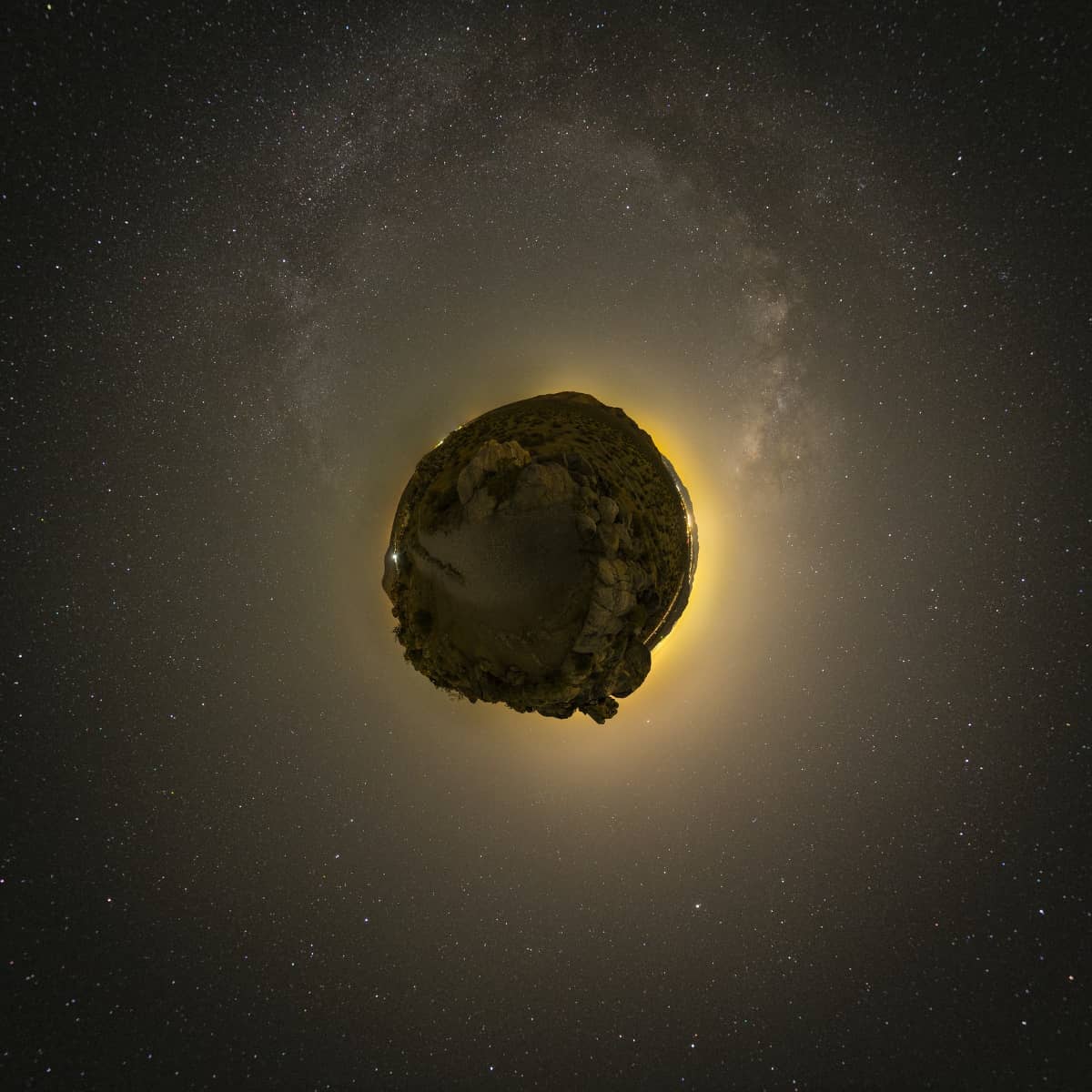Meteorites and Their Possible Impact on Earth
There is no known object that will hit the Earth in the coming years. It is true that our planet has been hit by meteorites and it will surely happen other times, however, for the moment it is not in danger of being hit by one of them.

Our solar system is made up of a great variety of bodies: the Sun, nine planets that together have a hundred or so moons of different sizes, comets composed of ice and gases, and asteroids, which are rocky objects smaller than planets, concentrated mainly between the orbits of Mars and Jupiter, although a group has been found between Neptune and Pluto.
Planets, asteroids, and comets move in space around the Sun. The largest known asteroid is Ceres, which has a diameter of 1,000 kilometers, less than one-third the diameter of the Moon. In general, asteroids have a diameter between 100 and 200 kilometers.
When asteroids or other bodies fall on the Earth or another world, they are called meteorites. Sometimes, when they fall, they form craters, although most of them, when they penetrate the Earth's atmosphere, volatilize and in doing so leave luminous trails known as meteor showers. Every day, approximately 19 tons of matter fall from space onto the Earth.
The largest known meteorite weighs approximately 55 tons and is found in Namibia. The largest known crater, believed to have been produced by a meteorite, was discovered in 1950 northwest of Quebec; it has a diameter of 4 kilometers, contains a lake, and is surrounded by concentric walls of fragmented granite.
One of the most important meteorites that have been analyzed is the Allende meteorite, which fell in 1969 near Toluca. Its total mass, before breaking up, is estimated at 4 tons, and its age is at five billion years. Since it is older than the age of the Solar System, we can deduce that it comes from outside the Solar System.
Is the Earth in danger of being hit by an asteroid?
It seems pertinent to answer this question because lately there has been a "rumor" that a large meteorite will hit the Earth shortly causing terrible disasters; even movies have been made about this subject. The answer is no.
According to NASA scientists, first and foremost, no known object will hit the Earth in the coming years. Our planet has indeed been hit by meteorites and it will surely happen other times, however, for the moment it is not in danger of being hit by one of them.
Near-Earth asteroids and meteorites have been monitored over the past decades. The International Astronomical Union has created a list of "potentially hazardous asteroids", which includes hundreds of objects. Often in astronomy, objects that had not been discovered appear by chance in images taken for different reasons.
What are the chances of being hit and when might it happen?
It must be remembered that interplanetary space is very large and practically empty, which means that the chances of our planet being hit by an object are very low. Most large bodies are hundreds or thousands of light-years away from us. Even the asteroid belts occupy so much space that the objects that constitute them are separated by millions of kilometers and between the asteroid belt and us there is much more space.
According to the near-Earth asteroid tracking team, "the most dangerous asteroids" capable of global disaster are rare. Objects whose diameter comprises between 1/2 and 1-kilometer crash into the Earth only once every 100 thousand years. And comets of this size are even rarer, and therefore pass near the Earth less frequently, perhaps every 500,000 years.
Hundreds of bodies have been discovered whose orbits are so close to Earth's orbit (beyond the orbit of the Moon) that they could collide in hundreds of thousands of years. However, the orbits of these bodies change slowly over time; even in the remote case of finding an asteroid that crosses paths with the Earth, there would be enough time to track it, measure it, measure its orbit more precisely, and if necessary create a plan to divert it.
Some media use only part of the information that scientists give them. They use only that part that can generate sensational news and that can be sold. That is why when we read, watch or listen to scientific news it is very important to take into account where the information comes from and if the media that is disseminating it is a media interested in scientific dissemination and science serving the benefit of humanity.
By Consuelo Doddoli and Julieta Fierro, Source: Correro del Maestro No.31.




